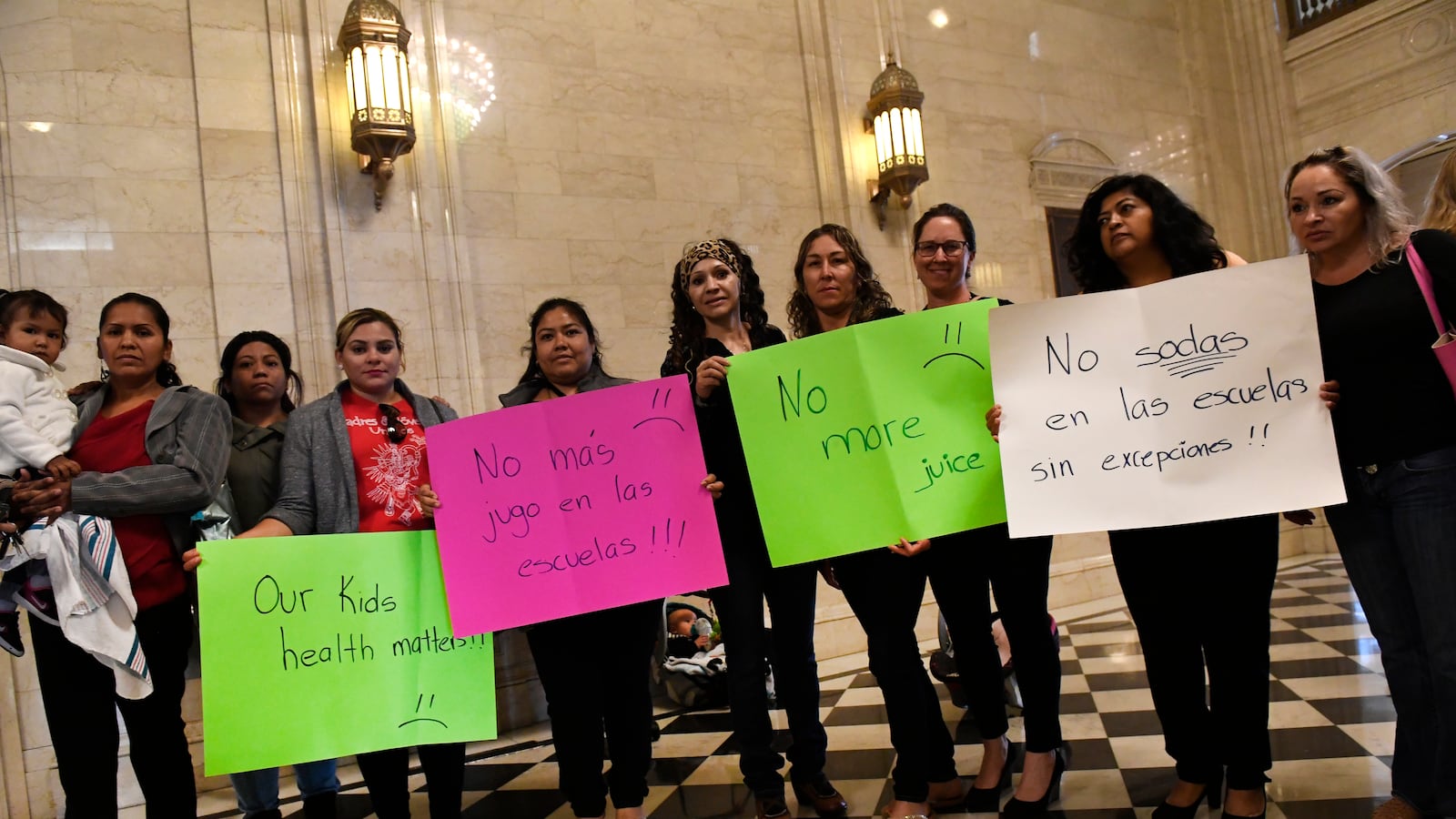Diet soda will be allowed to return to Colorado high schools after a seven-year ban, a fractured State Board of Education decided Wednesday at a tense meeting interrupted by a protest and security guards intervening.
The 4-3 vote — with the board’s conservative majority tipping the balance — mirrored the board’s preliminary vote in August reopening the door to diet soda in school vending machines and stores.
The outcome represents a defeat for a coalition of health advocates who had ramped up efforts in recent weeks to oppose the measure, arguing that diet soda has no place in the state’s “Healthy Beverage Policy” for schools.
Education department officials said they recommended changes to the Healthy Beverage policy, including the new provision allowing diet soda in high schools, to align Colorado rules with new federal rules and reduce schools’ regulatory burden. Even with the change, individual districts can decide not to stock the drinks.
Opponents of the rule change garnered more than 2,400 signatures on an online petition and showed up in force Wednesday, with parents and students speaking out against the rule change.
“Obesity and kids’ health is a complex issue that can’t be solved overnight,” said Leslie Levine, a research manager for LiveWell Colorado, a nonprofit that promotes healthy eating and living. “To address it requires all of us — parents, community and schools — working together.”
A group of about a dozen Spanish-speaking parents from southwest Denver pleaded with the State Board to keep the ban. They told the board that while they try to practice healthy habits at home, students have too many unhealthy options at schools.
“We need you to support the work we do at home,” parent Ana Maria Munoz said through a translator.
School nutrition officials from some of the state’s largest school districts, however, told the State Board that the change would reduce the regulatory burden while allowing school districts to maintain their own wellness policies.
“Nutrition is a community-based decision and we need (community) input to help us make decisions,” said Danielle Bock, operations coordinator for the Greeley school district’s nutrition department.
Wednesday’s decision contrasts with a tide of recent efforts that aim to reduce Coloradans’ consumption of sweet drinks. The right-leaning State Board, however, believes it’s the responsibility of parents and not the public sector to curb unhealthy habits.
“There’s not a better regulator for this conduct than the parent,” said board chairman Steve Durham, a Colorado Springs Republican.
Moments after the State Board voted, a group of parents organized by the activist group Padres y Jovenes Unidos stormed the chambers to voice frustration with the outcome.
“Please think about the students. Think about the future of the students,” said Gloria Borunda, who led the protest.
Durham called a recess and a security guard asked the crowd to leave.
Over the years, many advocates have lauded the state’s Healthy Beverage Policy for putting Colorado ahead of the curve. Healthy students are better learners, they say.
The beverage policy — passed by the State Board of Education in 2008 with a complete soda prohibition — governs the type, size and calorie count of beverages allowed in schools outside of the federally regulated school meal program.
At the time, there were no federal rules governing such beverages, but that changed in 2014. Opponents of diet soda in schools say those federal rules represent the lowest bar states must clear, and don’t prevent stronger state-level policies.
Wednesday’s vote comes six weeks before Boulder voters will consider levying a sales tax on soda and less than a year after Colorado significantly tightened beverage rules for kids in child care by banning all soda, flavored milks and sports drinks.


